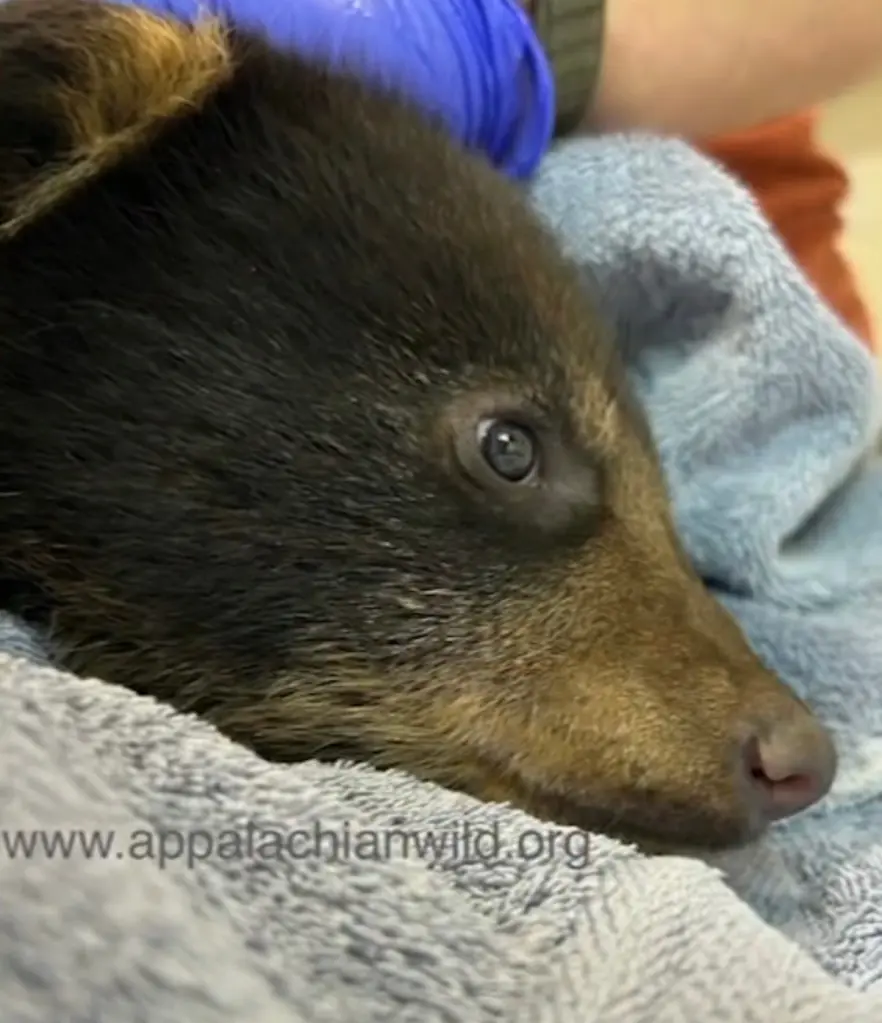The black bear cub, previously yanked from a tree by selfie-snapping individuals, is now thriving at a refuge center in North Carolina. Over the past couple of weeks, the orphaned cub has been recovering under the attentive care of a dedicated team at the Appalachian Wildlife Refuge. During this time, the cub has also found companionship with another orphaned cub at the center, showing positive signs of interaction and well-being.
According to Savannah Trantham, the executive director of the refuge, both cubs are doing remarkably well and are displaying typical behavior for their age. They are eating properly, engaging with enrichment activities, and showing promising signs of growth and development. The refuge team remains optimistic about their chances of being released back into the wild come autumn.
The cub arrived at the sanctuary on April 16, coinciding with the disturbing incident captured in a viral video where several people forcibly removed three bear cubs from a tree and handled them inappropriately. The actions of these individuals, though distressing, inadvertently led to the rescue of the lone cub left behind. Despite the unfortunate circumstances, the refuge is committed to providing a safe haven for wildlife in need of intervention.
Trantham hopes that the shocking visuals from the video will serve as a reminder of the challenges faced by wildlife and prompt people to reflect on their interactions with animals. While the preference is always for wild animals to remain in their natural habitat, the refuge stands ready to provide care and rehabilitation when necessary.
Regarding the individuals involved in the incident, they were cautioned by Wildlife Resources Commission officers but not charged with any offense. Trantham emphasizes the importance of respecting wildlife and refraining from interfering, even when baby animals appear to be unattended. She reassures that it’s not uncommon for young animals to be temporarily separated from their mothers during certain seasons, and intervention should only occur when absolutely necessary.















































